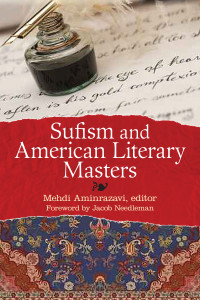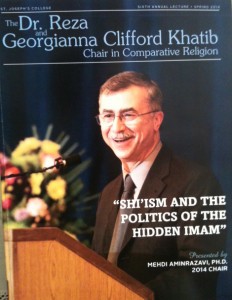SUNY Press recently published “Sufism and American Literary Masters” edited by Mehdi Aminrazavi, professor of Philosophy and Religion.
Mehdi Aminrazavi, professor of Philosophy and Religion.
Here is the forward by Jacob Needleman:
“This book reveals the rich, but generally unknown, influence of Sufism on nineteenth- and early twentieth-century American literature. The translation of Persian poets such as Hafiz and Sa’di into English and the ongoing popularity of Omar Khayyam offered intriguing new spiritual perspectives to some of the major American literary figures. As editor Mehdi Aminrazavi notes, these Sufi influences have often been subsumed into a notion of “Eastern,” chiefly Indian, thought and not acknowledged as having Islamic roots. This work pays considerable attention to two giants of American literature, Ralph Waldo Emerson and Walt Whitman, who found much inspiration from the Sufi ideas they encountered. Other canonical figures are also discussed, including Mark Twain, Herman Melville, Henry David Thoreau, and Henry Wadsworth Longfellow, along with literary contemporaries who are lesser known today, such as Paschal Beverly Randolph, Thomas Lake Harris, and Lawrence Oliphant.”

